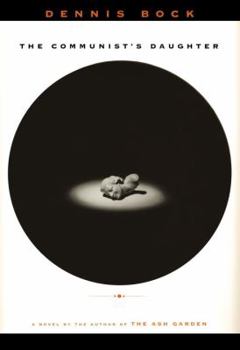The Communist's Daughter
Select Format
Select Condition 
Book Overview
The Communist's Daughter is a sweeping novel of love and betrayal spanning the trenches of the Great War to the horrors of Spain and China. Norman Bethune was a visionary whose dedication touched... This description may be from another edition of this product.
Format:Hardcover
Language:English
ISBN:1400044626
ISBN13:9781400044627
Release Date:February 2007
Publisher:Alfred A. Knopf
Length:287 Pages
Weight:1.43 lbs.
Dimensions:1.2" x 6.6" x 9.5"
Related Subjects
Contemporary Fiction Genre Fiction Historical Literary Literature & Fiction World LiteratureCustomer Reviews
3 ratings
A powerful indictment of war
Published by Thriftbooks.com User , 15 years ago
The Communist's Daughter is a powerful novel about war, politics, and betrayal during two of the 20th Century's many horrible armed conflicts. Norman Bethune comes through as a deeply flawed, but also heroic, human being. It's a great reminder of what wars do to people.
Relative of Dr Norman Bethune
Published by Thriftbooks.com User , 15 years ago
As a great-niece of Dr. Norman Bethune, I found this story to be most interesting. It hasn't convinced me that he is a good man, though it has reinforced his standing as a good doctor in China. [One of his relatives is a bank teller in Canada, who has all the banks' Chinese customers lining up at her cage because of her name.] His personal life, from what we've found out, stank, but he was innovative.
Meditations of a medicine man
Published by Thriftbooks.com User , 17 years ago
There's a rising number of novelists using fiction to produce biographies. For some of these, imaginary children prove a useful ploy through which to depict a life. Peter Carey's "True History of the Kelly Gang" is an outstanding example: the notorious bushranger writes a long missive to an unseen daughter in the midst of a siege by policemen. Dennis Bock has followed a similar course, with a similar character. Norman Bethune, who resides among the icons of Canadian history, is given us as a man beset on many sides by a variety of enemies. In this case, it's the Japanese Imperial Army in China, the Fascisti in Spain and scattered personal opponents - and his own father. Bock, using Bethune's "letters" to a daughter he's never seen, applies well-honed skills to animate an idol. Bethune, of course, is the man best known for inventing the M.A.S.H. unit to rapidly treat the wounded in military engagements. Bringing experience of military field hospitals from the Spanish Civil War of the 1930s, Bethune relocates to China where the Japanese invasion is being resisted by Mao's Communist forces. During his shift of site, he has learned of his daughter, born of his Madrid lover, Kajsa von Rothman. A Swedish anarchist, Kajsa brings light into Bethune's sombre outlook. Bock's portrayal of Bethune's view of her well captures a man's intense sense of real love discovered after a long, sometimes futile quest. In the letters to his daughter, Bethune imparts his life in brief, but intense sketches. Bock doesn't provide a sequential scenario, but lets Bethune skip about in time and space. In a less skillful writer, this would be distracting and perhaps difficult. As a series of seven missives, listed as "Envelope One" through "Seven", each titled in typescript in the way Bethune might have produced with his dilapidated typewriter, the only focus is how the surgeon might have imparted his life to his daughter. We learn that his Ontario childhood lacked stability. Bethune's parents, particularly his father, were evangelicals, leaving Norman with minimal options. At a young age, however, he learned that the road to Damascus is not a one-way street. Revelation can lead away from divine mysteries and dogmas as readily as attract the unwary to them. For Norman, it was the knowledge that he, and every other human is alone. That isolation can be alleviated only by people who are also aware of that state and take steps to reach out to their fellows. For Bethune, the Communist Party was a means tothat fellowship and medicine a practical manifestation of it. The medical treatments, particularly in China, dominates much of the text. Not the clinical details, although those are present, but the personalities Bethune can identify and convey them. The Chinese were unused to Westerners, and Bethune's commanding presence often awed them. In his effort to provide care, he's faced with shortages, particularly of blood. With much transfusion experience gained in Spain, the doctor





